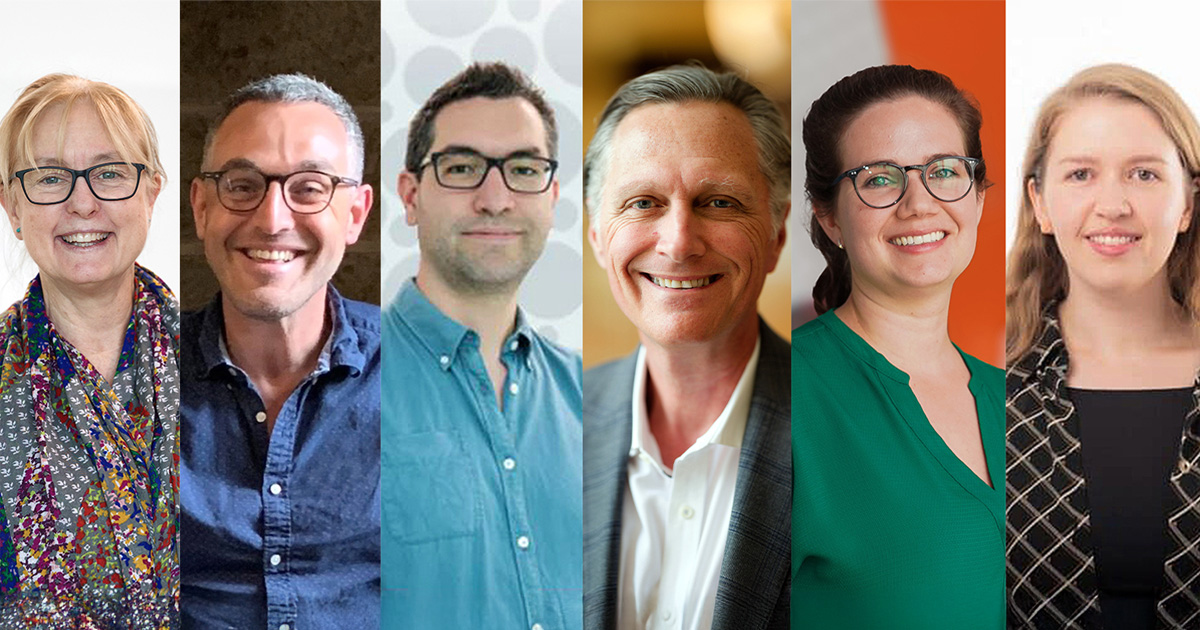
Six researchers from The Kids Research Institute Australia have been awarded $11.6 million in prestigious Investigator Grants from the National Health and Medical Research Council to pursue innovative child health research focused on intellectual disabilities, the unmet health needs for adolescents, malaria control in Africa, Strep A and rheumatic heart disease, mental health and Aboriginal cancer health outcomes.
Investigator Grants, announced today by Federal Health Minister Mark Butler as part of a $422 million investment in health and medical researchers across Australia, provide the nation’s top researchers – at all career stages – with five years of secure funding to address some of Australia and the world’s most pressing health challenges.
The funding gives scientists the ability to pursue important new research and collaborations as they arise, rather than being tied to one specific research project.
Professor Jenny Downs, Head of the Development and Disability Research Program at The Kids, has been awarded $2.9 million to improve health and quality of life for children with intellectual disabilities. She will lead a team to analyse large datasets to understand risk factors for health and health service outcomes, including potentially preventable hospitalisations. Her work will expand existing studies on how to measure movement, communication, pain and quality of life, to ensure that impacts of treatments can be accurately measured. Her work will co-design and test new interventions and models of care, aiming to enhance education and skills for children with intellectual disability, caregivers, and clinicians, for better child health and to reduce potentially preventable hospitalisations.
Professor Peter Azzopardi, Head of Adolescent Health and Wellbeing at The Kids and Global Adolescent Health Professor at Murdoch Children’s Research Institute, has received $2.8 million to identify the most effective ways to improve adolescent health across the Asia Pacific region. His research will address three key areas that emerge during adolescence and have seen little improvement: mental health, sexual and reproductive health, and obesity. While the project will have a strong focus on Australia, particularly Aboriginal and Torres Strait Islander adolescents, it will also home in on other countries where adolescent health needs remain unmet, such as Fiji, Papua New Guinea, Indonesia, and the Philippines.
Professor Nick Golding, Head of Infectious Disease Ecology and Modelling at The Kids and Adjunct Professor in the School of Population Health at Curtin University, has received $2.6 million to conduct mapping and forecasting to counter biological threats to malaria control in Africa. Due to the stalling of malaria control and rising biological threats, Professor Golding’s team hopes to develop continental-scale models to accurately track the status of threats to malaria control and project them into the future. The models will deliver:
- Up-to-date threat maps to target surveillance, funding and interventions
- Spatial forecasts of how threats, and intervention needs, will evolve over the coming years
- Scenario analyses to design effective but sustainable long-term malaria control strategies
Professor Jonathan Carapetis AM, Executive Director of The Kids, has been awarded $2 million to advance his decades-long research on Group A Streptococcus (Strep A) and rheumatic heart disease (RHD), aiming to eliminate RHD entirely.
Over the next five years, his work will focus on:
- Taking a Strep A vaccine into a Phase 2b efficacy trial in Australia and define a pathway for further development and licensure including global partnerships
- Developing new evidence-based guidelines for environmental health interventions to reduce Strep A infections and RHD in First Nations communities
- Providing multiple options for improved delivery of long-acting penicillin for RHD prevention that hurt less and last longer, and developing new formulations that are practical and largely painless, including a self-administered option
- Finalising a novel biomarker-based diagnostic test for ARF and identifying a commercial partner to make the test available in Australia and globally.
The research will be conducted within a world-leading framework of First Nations leadership that has been championed by Professor Carapetis.
Dr Penelope Strauss, a Research Fellow in Youth Suicide Prevention at The Kids and Adjunct Research Fellow in the University of Western Australia’s School of Population and Global Health has been awarded $688,000 to improve suicide prevention and mental health support for young people of diverse genders. She will lead new research, starting with a national survey, Trans Pathways 2 – a follow-up to her 2016 study – to better understand the mental health challenges and support needs of trans youth. She will also explore how gender-affirming surgery impacts mental wellbeing and work on improving clinical care by introducing world-first suicide prevention guidelines and mapping crisis support services for trans young people.
Dr Justine Clark, a post-doctoral researcher in Indigenous genomics at The Kids, has been awarded $685,000 to improve Aboriginal cancer health outcomes in the precision medicine era. Extending her team's existing work, she aims to translate new knowledge of blood cancer genomics among an Aboriginal cohort into the clinic.
Dr Clark will collaborate with a team leading a major South Australian cancer clinical trial to embed study design elements to support access and benefit for Aboriginal patients. Dr Clark will also investigate how genomics could be utilised for a cancer prevention agenda through population level cancer screening among Aboriginal and Torres Strait Islander communities.
See more information on the funding announced by Minister Butler today.
Professor Downs, Professor Carapetis and Dr Strauss’ grants will be administered through The University of Western Australia, while Professor Golding, Professor Clark and Professor Azzopardi’s grants will be administered by Curtin University, the Australian National University and the Murdoch Children's Research Institute respectively.
